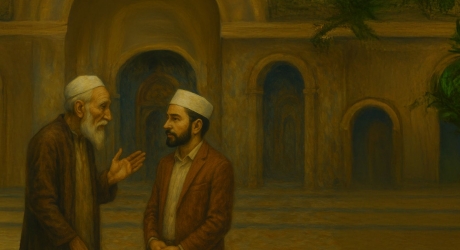Keep Your Cool | Razia Siddiqui | TOI | February 27, 2011 | Page 4
Road rage has ceased to shock many of us who live in cities. Why, asks Raazia Siddiqui Venting out anger has become a common practice, especially in urban life. It can happen on the road, at home, or at the workplace. Operating under conditions of high stress, the majority no longer regards patience as a virtue; it is seen as a waste of time, an act of cowardice.
The following incident occurred at a busy toll-road in a metropolitan city where traffic queues are a regular feature during peak hours. One day while driving to work, waiting for my turn to arrive at the toll-gate, my attention was drawn towards the adjacent lane. It appeared that the chauffeur of a certain sedan had entered into a fierce argument with the toll-gate keeper. In the passenger's seat sat a man, perhaps the owner of the car, dressed most exquisitely. But within seconds of the argument, the gentleman jumped out of the car and started shrieking at the gatekeeper!
What could be so compelling that lets a man give up his gentle demeanour and become so aggressive and rude? Why, despite being a unique creation, does man find it so difficult to maintain calm?
Human beings are considered to be unique because we are intelligent; we have a discerning mind that can know the difference between right and wrong. Then why are we overwhelmed with negative thoughts? Unable to realise the sea of opportunities that lie beyond an immediate problem, we choose to be reactive and in return compound problems.
On the contrary, giving a well-considered response can change even the most negative situation into a positive event. Here I am reminded of a story about M K Gandhi, often referred to as the Mahatma perhaps because of his extraordinary capacity for patience and equanimity.
Gandhi was going to London by ship. A European wrote a poem on Gandhi criticising him bitterly and gave the poem to him. Gandhi coolly saw the poem, took out the pin from the papers and put them in his desk drawer. The European asked, "Don't you see that there is essence in it? Gandhi replied. 'Yes, I took the essence and put it inside the drawer.' This is how a considered response can convert a negative event into a positive one.
The art of converting negative into positive is a very important principle. It allows a person to exercise restraint and control over negative emotions. Doing so, we get time to think about the pros and cons of the event and plan our response with deliberation. Such an approach renders us capable of noticing the immense opportunities if we adopt the course of conciliation without wasting energy and effort on confrontation.
Life is a challenge. By cultivating a non-confrontational approach and optimally utilising our abilities, we can achieve positive outcomes and be peaceful and happy. But unfortunately, most lose this chance because of an obsession with ego and pomposity.
It is, therefore, up to each one of us to choose our course- angry reaction which may lead to loss of opportunities or a well considered response which would direct us to the path of calm, happiness and well being.









